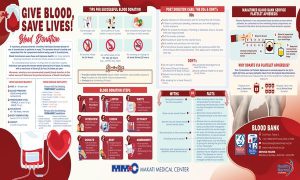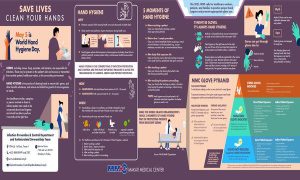
It is the wet season again in the Philippines. According to PAGASA, most of the average annual rainfall occurs from June to November. This is also when cases of flu usually reach their peak.
Many Filipinos believe that getting wet from the rain can lead to colds, fever, and other flu-like symptoms. Usually, after getting wet, even from a drizzle of rain, one starts to feel unwell. Sneezing is the first sign, followed by muscle pain, then a fever.
This poses the question, “does getting wet from the rain make you sick?” Parents have long believed that getting wet from the rain causes sickness in their children, but is this really the case? Read on to learn more.
Can You Get Sick from Rain?
The age-old question has left people wondering how exactly can rain can cause someone to be sick. For many, especially older people, the flu season is closely related to the rainy season. It is during this time that cases of coughs and colds are prevalent; thus, they believed that getting wet from the rain is what makes people sick.
However, this is not the case. Yes, people can get sick from being in the rain. But the reason lies in how effective viruses can infect the body during this time. The rhinovirus is a virus which causes common colds that can survive and proliferate in cooler temperatures. It can attach to the nasal or throat cavity, which has a lower temperature than the body core.
This invasion activates the immune system to fight these viruses, causing a person to feel tired and sick, especially if the particular strain is new to the body.
6 Tips to Avoid Getting Sick from the Rain
Understanding how the rain makes a person sick will help determine the needed measures to fend off the virus. Here are some of them:
1. Bring rain gear when heading out
When going out during the rainy season, especially when commuting to work, it is safer to have rain gear on or on hand. This includes an umbrella, raincoat or hooded jacket, and waterproof shoes. If opting for a hooded jacket, ensure the material is water-repellent, not cotton, as it will only soak up the raindrops. This prevents the body from experiencing a drastic change in temperature from getting wet. Aside from the rain gear, bring extra clothes, or keep a set of clothes at the office, to change on after being in the rain.
Having these gear when out and about may also be handy since the weather can be unpredictable. Even when it is sunny outside, there is always a chance of rainfall anytime during the day during the wet season.
2. Take a shower immediately
This tip may seem counterintuitive, but a shower can actually help regulate body temperature after exposure to the cold. Again, most viruses that cause cough and colds have an easier time invading the body when there is a drastic temperature change. Showering helps the body gradually shift back to the normal temperature after drying.
On top of this, it can wash away the germs that may have attached to the skin.
3. Strengthen the immune system
There are numerous ways to strengthen the immune system and help with treating a cold. For example, it will be helpful to take the right dosage of vitamin C daily to help decrease the duration and severity of a cold’s symptoms, making it tolerable for the individual. Apart from that, a healthy diet with the right minerals and vitamins may also help.
Also, staying hydrated and drinking lots of water can help eliminate toxins from the body while helping ease congestion by thinning the mucus.
4. Wash hands thoroughly with antibacterial soap
Handwashing properly can also help prevent the flu. As mentioned, flu-causing germs can survive better in cold temperatures. This increases their chances of going airborne and staying in the air for a long period before settling on surfaces. Thus, it is advisable not to touch the face before washing the hands thoroughly.
Washing for at least 20 seconds using antiseptic soap can eliminate the germs from the hands that may have transferred from touching surfaces. Other threats during the wet season include common water-borne diseases such as diarrhea, cholera, and leptospirosis. Proper washing of the hands (and feet) will come a long way to keep one’s self protected.
5. Wear warm clothes during the cold season
On top of bringing rain gear when going out, layering clothes is another way to keep the body from getting cold. Polypropylene or thermal outfits can keep the body from releasing heat quickly. Double up with an insulating layer to stay warm.
6. Consider doing light exercise
Once the first signs of a cold or flu are observed, it is best to exercise and sweat it out; just make sure there is no fever. Exercising can help the body feel better by opening nasal passages to relieve congestion. It is possible to stay active even at home if going outdoors is out of the equation.
Fend Off the Flu This Rainy Season
Along with the annual wet season comes the rising flu cases. Many believe that getting wet from the rain is the main reason a person gets sick and experiences flu-like symptoms.
However, the reason behind this is mainly how the flu virus has become more effective in invading the body. This makes it crucial to stay healthy to fend off an incoming infection. Getting a diagnostic test and understanding your body’s condition is essential.
Reach out to MakatiMed and learn how our world-class facilities and healthcare services can help you stay healthy and in tip-top shape.








